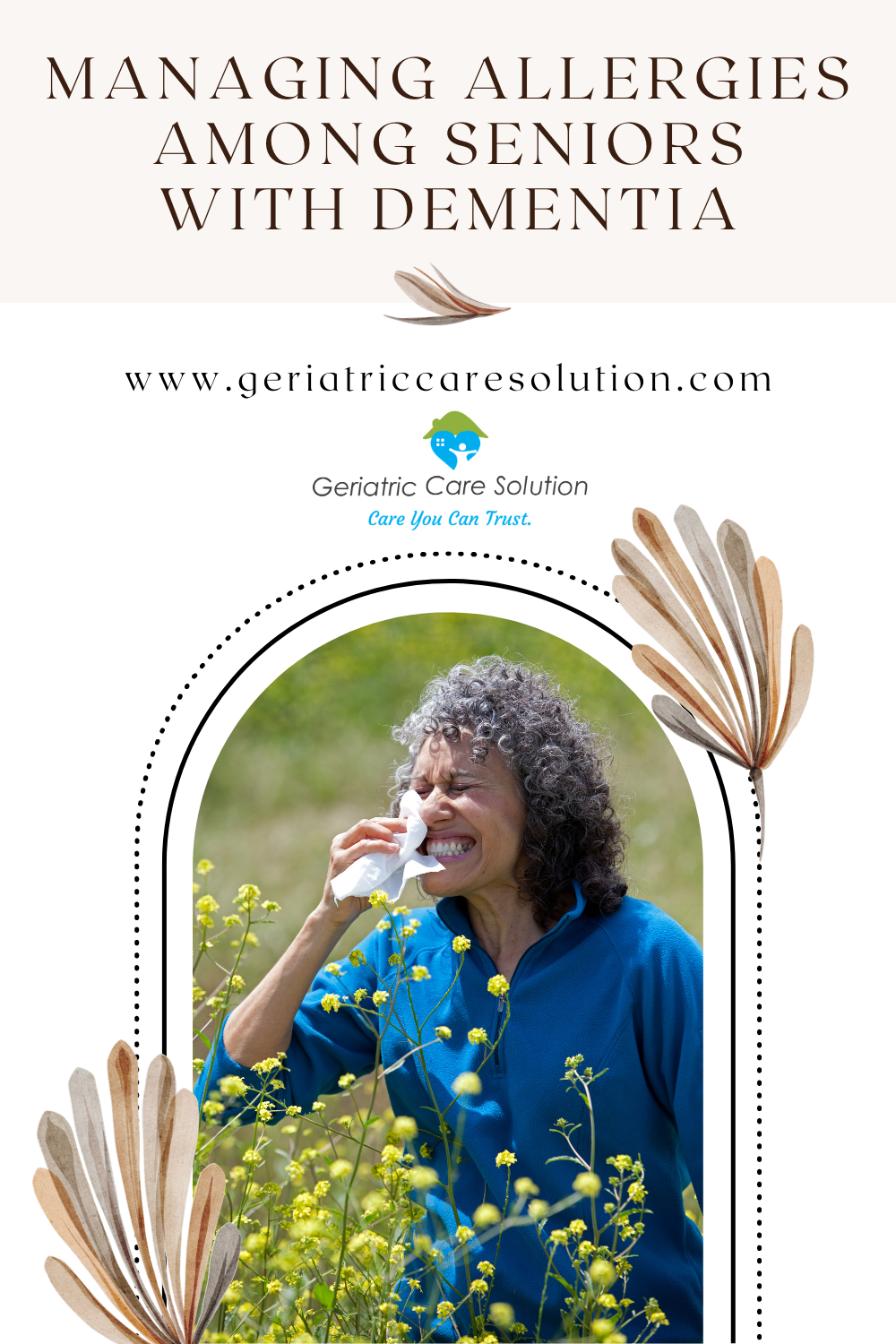
Managing allergies among seniors with dementia
Managing allergies among seniors with dementia
The next time your allergies act up, it might be better for you to think twice before reaching for those antihistamines in your medicine cabinet.
Multiple studies suggest that anticholinergic agents—substances that are often used to counter colds and common allergies—may have adverse impact on the brain if used for an extended period of time. This is exactly the reason why short-term memory, reasoning, and confusion join other symptoms like drowsiness, dry mouth, constipation, and urine retention as usual side effects of prolonged intake of anticholinergic drugs, according to a study by scientists from Harvard University. [1]
Watch the video below to find out more:

The study noted that as people get older, the body (the kidneys and livers in particular) loses a significant degree of ability to break down chemicals. This makes it easier for adverse effects to manifest quite easily, especially since older people—particularly seniors with dementia—take lots of other prescription drugs and other over-the-counter medications.
With this being the case, what’s the most effective way to manage allergies among seniors with dementia? Here are a few things you can keep in mind:
Identify the culprit
When caring for seniors with dementia, it’s best that you sit down with immediate family users to discuss the former’s health history, which include their allergy triggers.
If you know what you need to take out of the equation, you are already doing a portion of the job right.
Be quick to respond
Stay alert for allergy symptoms, which may come in the form of runny nose, frequent sneezing, or watery eyes.
These symptoms may pose serious danger to seniors with dementia, especially those living with other pre-existing health conditions.
Keep them indoors as much as possible
Lessen the frequency of allergy attacks by having seniors with dementia stay indoors, particularly during allergy season. At home, it’s best to keep seniors with dementia occupied by having something to do (See: 5 rewarding activities for elders with dementia and Alzheimer’s)
Should seniors with dementia feel the need to get a breather outside, or perhaps insist on visiting a friend or a loved one nearby, you can try getting in touch by through other means instead, like video chats (See: How technology can help elders cope with old age).
Seek expert help
Solving the riddle posed by allergy attacks among seniors with dementia can be frustrating. This is why the best way to go about it is to always discuss these things with your loved one’s doctor. Clearly, there’s no better person to prescribe a more efficient method of treatment than them.

